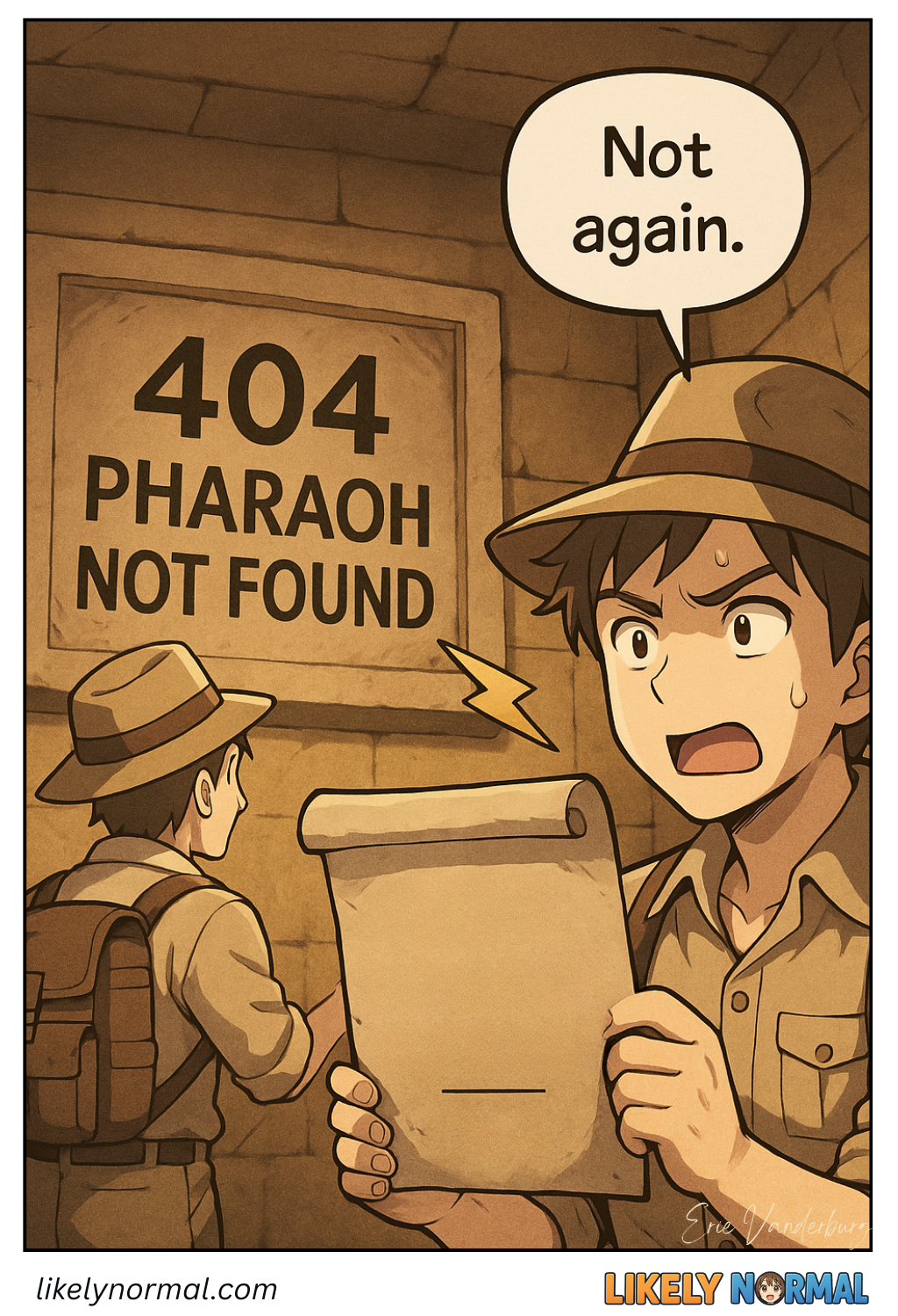404 Pharaoh Not Found
You know that feeling when you click a link with hopeful anticipation, only to be greeted by that digital dead end: the dreaded 404 error? This virtual cul-de-sac is the Internet’s way of saying, “The thing you wanted? Gone. Poof. Vanished like your motivation on a Monday morning.” It’s not quite a “no,” but more of a “hell no” wrapped in the politest of error codes.
The 404’s origin story reads like tech folklore – allegedly named after Room 404 at CERN where the first web servers lived and where lost data went to die. Today, it’s become the universal language of disappointment, transcending borders and browsers. That moment when the page fails to load lives in the same emotional space as reaching for the last cookie only to find an empty box – a special kind of betrayal that stings no matter how many times it happens.
What makes the 404 particularly cruel is its false promise of potential. For one glorious millisecond after clicking, you dare to hope – maybe this link will work, maybe this time will be different – before the cold reality of that error message dashes your dreams. The modern web has tried to soften the blow with cute illustrations and witty messages, but let’s be honest: a dancing cartoon robot doesn’t ease the pain when you’re trying to access that one crucial recipe or important document.
In our always-online world, the 404 has become more than an error – it’s a philosophical statement. A reminder that nothing lasts forever, not even that perfectly curated blog post from 2012 you swear you didn’t imagine. Some websites have embraced the absurdity with increasingly creative 404 pages – from Shakespearean laments to Star Wars references – as if humor could compensate for our broken digital dreams.
The true genius of the 404 is that it somehow makes us feel both frustrated and guilty at the same time. Is it the website’s fault? Our connection? Did we type it wrong? We’ll never know for sure, but we’ll certainly mash that refresh button like it owes us money just in case. In an internet full of horrors, the 404 remains the most benign yet personally offensive – the virtual equivalent of someone saying “You must be mistaken” when you know darn well you’re right.
At least it’s not a 500 error. Small mercies.

Discussion ¬